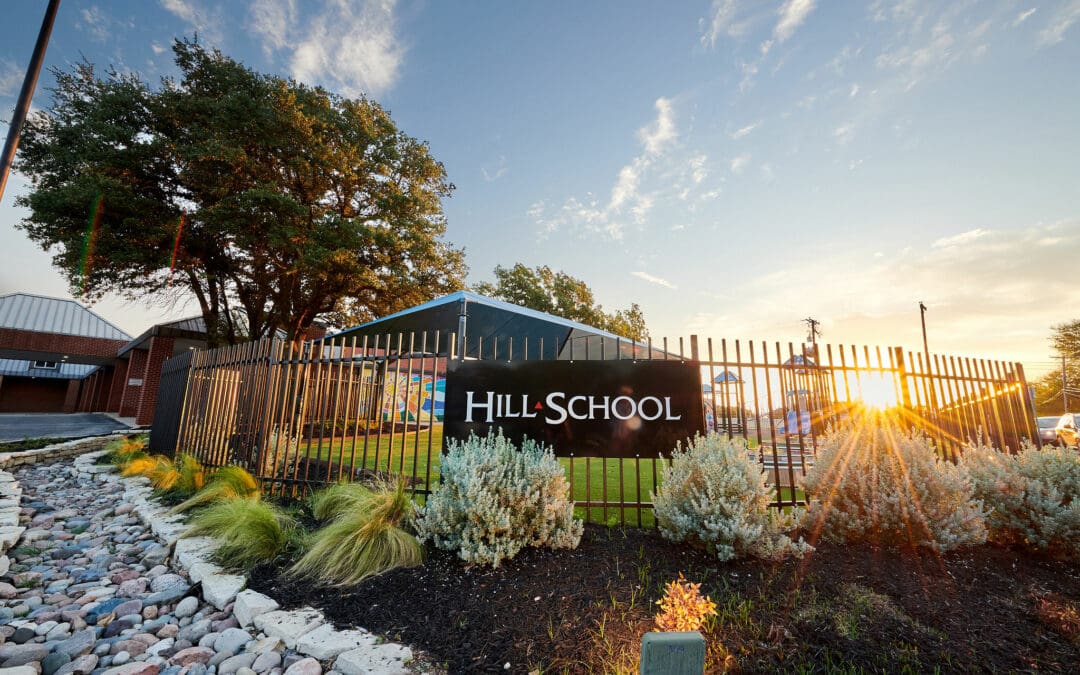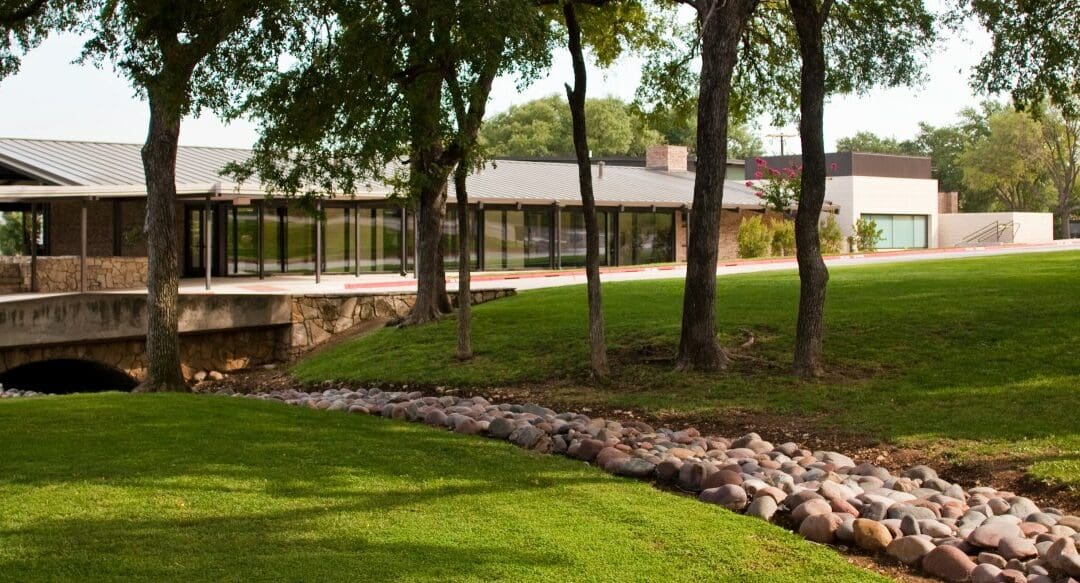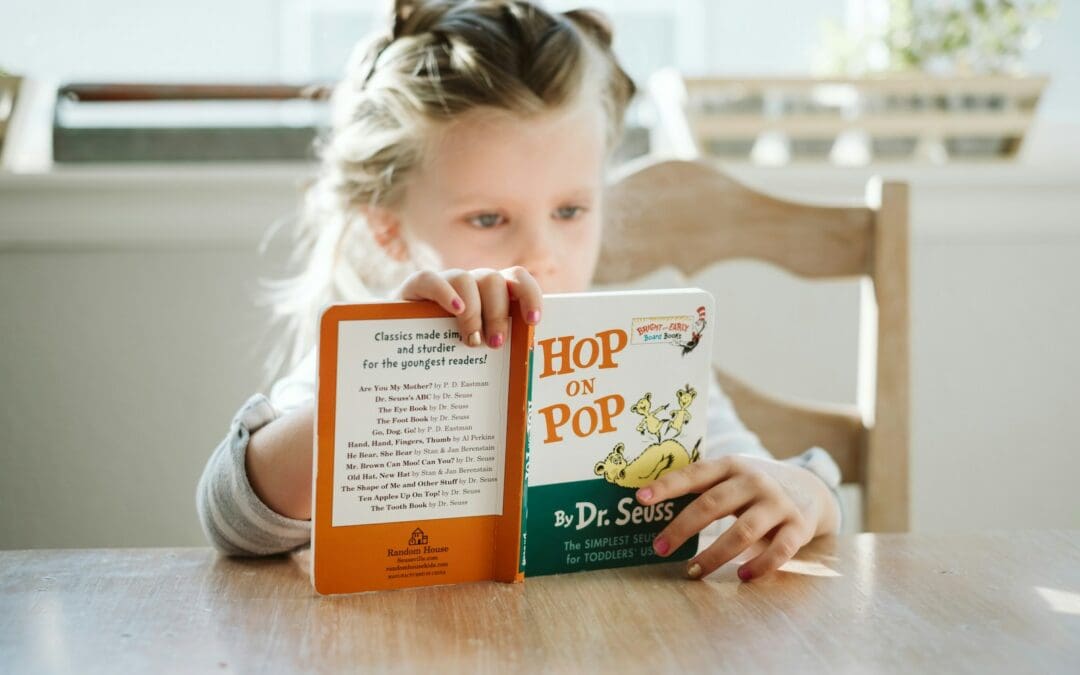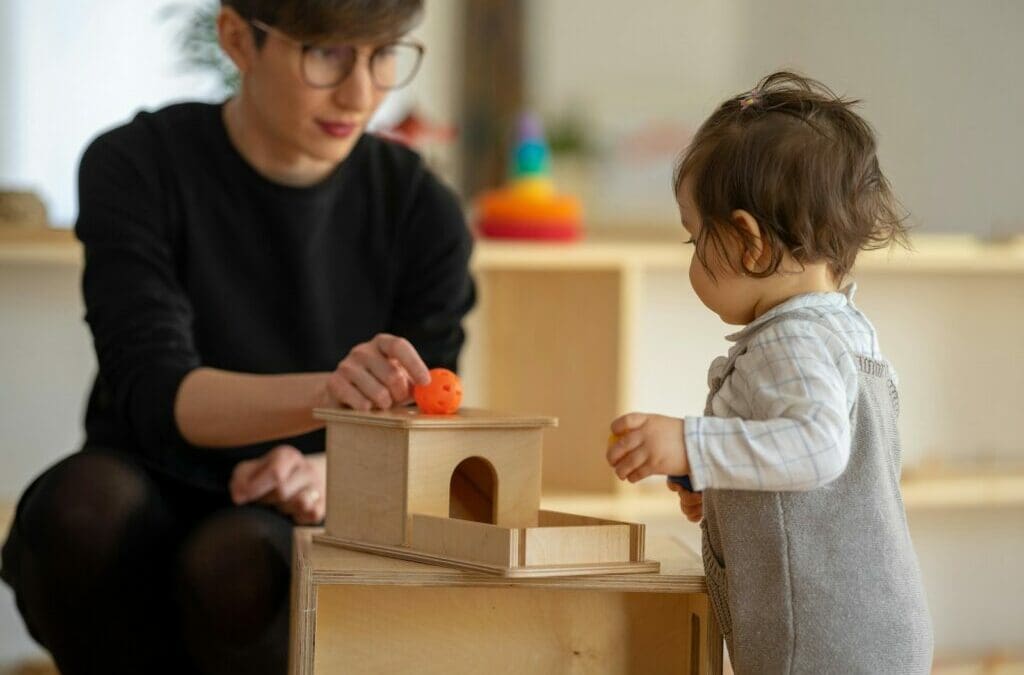
PROFILE – Hill School of Fort Worth
Explore the personalized educational approach at Hill School of Fort Worth, designed to empower students with learning differences to achieve academic success and personal growth.

Explore the personalized educational approach at Hill School of Fort Worth, designed to empower students with learning differences to achieve academic success and personal growth.

Learn about Fort Worth Country Day School, known for its commitment to developing well-rounded students through excellent academics and vibrant extracurricular programs.

Your Guide to Educational Opportunities and Community Insights

Fort Worth, Texas, is renowned for its outstanding private preschools, offering unparalleled early education that prepares children for a lifetime of learning. Discover the unique benefits and innovative approaches of private preschools in Fort Worth.

Dive into why private schooling might be the best choice for your child

Photo by Sebastian Pandelache on Unsplash
An Analysis of Approaches
Private schools are known for offering a more exclusive and personalized education experience to their students. One aspect that sets private schools apart from public schools is their teaching methodologies. Private schools often have more freedom to experiment with different teaching techniques and approaches, which can lead to a more engaging and effective learning experience for students.
In comparison to public schools, private schools have the ability to tailor their teaching methodologies to better suit their students’ needs. Private schools can take a more individualized approach to education, focusing on each student’s strengths and weaknesses. For example, some private schools may implement project-based learning, where students work on long-term projects that allow them to develop critical thinking and problem-solving skills. Other private schools may prioritize smaller class sizes, which can lead to more personalized attention from teachers. Overall, private schools have the flexibility to experiment with different teaching methodologies to create a more effective and engaging learning experience for their students.
A Comparative Study of Teaching Methodologies
Teaching methodologies are the strategies and techniques that teachers use to facilitate learning. A comparative study of teaching methodologies in private and public schools has been conducted to determine the effectiveness of different teaching approaches. The study aimed to compare the differentiated instructions of public and private schools and to identify the teaching methods that are most effective.
One of the main findings of the study was that private schools tend to use more experiential learning techniques compared to public schools. Experiential learning is a hands-on approach that involves students in active learning experiences. This approach is found to be more effective in increasing student knowledge of agriculture compared to direct instruction methods.
Another teaching methodology that was compared in the study was cooperative learning. Cooperative learning is a teaching approach that involves students working together in groups to achieve a common goal. The study found that all eight cooperative learning methods had a significant positive effect on student learning compared to competitive learning.
Private schools also tend to use a more personalized approach to teaching compared to public schools. Differentiated instruction is a teaching approach that involves tailoring instruction to meet the individual needs of each student. Private schools are found to be more effective in implementing differentiated instruction and incorporating new teaching approaches.
In conclusion, a comparative study of teaching methodologies in private and public schools has shown that private schools tend to use more experiential learning techniques, cooperative learning, and differentiated instruction compared to public schools. These teaching approaches have been found to be more effective in increasing student learning and engagement.
Private School Teaching Methods
Private schools often have different teaching methods compared to public schools. Private schools have more flexibility in their teaching methods, which allows them to experiment with new approaches to education. In this section, we will discuss some of the most common teaching methods used in private schools.
Personalized Learning
Private schools often prioritize personalized learning, which is an approach to education that tailors the learning experience to each student’s individual needs. This approach takes into account the student’s learning style, interests, and abilities. Private school teachers often use a variety of methods to personalize learning, such as:
One-on-one instruction
Self-paced learning
Project-based learning
Differentiated instruction
Personalized learning has been shown to improve student outcomes and increase engagement in the classroom. Private schools often have smaller class sizes, which allows teachers to provide more individual attention to each student.
Collaboration
Collaboration is another key teaching method used in private schools. Private school teachers often use group work and team projects to encourage collaboration among students. This approach helps students develop important social and emotional skills, such as communication, teamwork, and problem-solving.
Private schools often have a strong sense of community, which fosters collaboration among students. Teachers often create a supportive and inclusive classroom environment that encourages students to work together and support one another.
Lecturing
Lecturing is also a common teaching method used in private schools. Private school teachers often use lectures to introduce new concepts and provide context for student learning. However, private school teachers often use a more interactive approach to lecturing, such as:
Asking questions
Encouraging discussion
Using multimedia resources
Private school teachers often have more freedom to experiment with different teaching methods, which allows them to tailor their approach to the needs of their students. This flexibility can lead to more engaging and effective classroom experiences for students.
In conclusion, private schools often have a more flexible and personalized approach to teaching, which allows them to experiment with new teaching methods. Private school teachers often prioritize personalized learning, collaboration, and interactive lecturing to create engaging and effective classroom experiences for their students.
Public School Teaching Methods
Public schools are institutions that are funded by the government and provide education to students from diverse backgrounds. The teaching methodologies used in public schools are often standardized and designed to cater to a large number of students.
Classroom Learning
In public schools, classroom learning is often based on a teacher-centered approach. The teacher is the primary source of information and knowledge, and students are expected to listen and take notes. Classroom sizes can be large, which can make it challenging for teachers to provide individual attention to each student.
Public school teachers often use lectures, presentations, and demonstrations to deliver information. Students are expected to learn by listening, taking notes, and completing assignments. Classroom learning is often focused on achieving specific learning objectives and preparing students for standardized tests.
Explaining
Public school teachers use various methods to explain concepts to their students. They often use textbooks, workbooks, and other instructional materials to provide students with information. Teachers may also use visual aids such as diagrams, charts, and videos to help students understand complex concepts.
In public schools, teachers are often required to follow a set curriculum and use standardized teaching methods. This can limit their ability to be creative and adapt their teaching methods to meet the needs of individual students. However, public school teachers are trained professionals who are knowledgeable about their subject matter and have experience teaching students from diverse backgrounds.
In conclusion, public school teaching methods are often standardized and designed to cater to a large number of students. Classroom learning is often based on a teacher-centered approach, and teachers use various methods to explain concepts to their students. While public school teachers may have limited flexibility in their teaching methods, they are trained professionals who are knowledgeable about their subject matter and have experience teaching students from diverse backgrounds.
Influence of Class Size
Class size is a significant factor in determining the quality of education provided by private and public schools. Research studies have shown that smaller class sizes lead to better academic performance and higher levels of student engagement.
Private Schools
Private schools generally have smaller class sizes compared to public schools. Private schools have the advantage of being able to limit their class sizes, which allows for more individualized attention and personalized instruction. According to a study by EBSCOhost, private schools have an average class size of 18 students, which is significantly smaller than the average class size of public schools.
Smaller class sizes in private schools allow teachers to provide more individualized attention to each student, which can lead to better academic performance and higher levels of student engagement. Private schools also tend to have a lower student-to-teacher ratio, which further enhances the effectiveness of teaching methodologies.
Public Schools
Public schools, on the other hand, tend to have larger class sizes due to limited resources and funding. According to a study by EBSCOhost, public schools have an average class size of 24 students. Larger class sizes in public schools can lead to less individualized attention and a less personalized instruction experience.
However, public schools have been implementing strategies to reduce class sizes, such as hiring more teachers and building more classrooms. Public schools have also been increasing their use of technology to provide more personalized instruction to students, which can help compensate for larger class sizes.
In conclusion, class size is an important factor that can influence the effectiveness of teaching methodologies in private and public schools. Private schools generally have smaller class sizes, which allows for more individualized attention and personalized instruction. Public schools, on the other hand, tend to have larger class sizes, but are implementing strategies to reduce class sizes and provide more personalized instruction to students.
Role of Curriculum
The curriculum is a vital part of private school teaching methodologies. It sets the framework for what students will learn and how they will learn it. A well-designed curriculum can help students develop critical thinking skills, problem-solving skills, and creativity. In this section, we will discuss the role of the curriculum in private school teaching methodologies, with a focus on the science, social sciences, and English curricula.
Science Curriculum
The science curriculum in private schools is designed to provide students with a solid foundation in scientific principles and concepts. Science teachers use a combination of lectures, laboratory experiments, and hands-on activities to help students understand scientific concepts. The curriculum typically covers topics such as biology, chemistry, physics, and environmental science.
Private schools often have smaller class sizes, which allows science teachers to provide more individual attention to students. This can be especially beneficial for students who struggle with science or who need extra help understanding scientific concepts. Science teachers in private schools are often highly qualified, with advanced degrees in their field.
Social Sciences Curriculum
The social sciences curriculum in private schools is designed to help students understand human behavior, society, and culture. The curriculum typically covers topics such as history, geography, economics, and political science. Social sciences teachers use a variety of teaching methods, including lectures, discussions, and hands-on activities.
Private schools often have more flexibility in designing their social sciences curriculum than public schools. This allows teachers to tailor the curriculum to the needs and interests of their students. Social sciences teachers in private schools are often highly qualified, with advanced degrees in their field.
English Curriculum
The English curriculum in private schools is designed to help students develop strong reading, writing, and communication skills. The curriculum typically covers topics such as literature, grammar, and composition. English teachers use a variety of teaching methods, including lectures, discussions, and writing assignments.
Private schools often have more flexibility in designing their English curriculum than public schools. This allows teachers to tailor the curriculum to the needs and interests of their students. English teachers in private schools are often highly qualified, with advanced degrees in their field.
In conclusion, the curriculum plays a critical role in private school teaching methodologies. The science, social sciences, and English curricula are designed to provide students with a solid foundation in these subjects and to help them develop critical thinking, problem-solving, and communication skills. Private schools often have more flexibility in designing their curricula than public schools, which allows teachers to tailor the curriculum to the needs and interests of their students.
Impact of Teaching Methodologies on Student Achievement
Research has consistently shown that teaching methodologies have a significant impact on student achievement and academic performance. A meta-analysis of national research conducted by Wiley Online Library found that alternative teaching strategies, such as cooperative learning and active teaching approaches, had a positive impact on student achievement compared to traditional teaching methods.
In engineering education, a study by Taylor & Francis Online found that demonstration and lecture strategies had a significant positive impact on academic achievement. However, the study also found that the impact of the teacher’s effect on student achievement was even greater than the impact of teaching strategies.
It’s important to note that the effectiveness of teaching methodologies may vary depending on the subject and the student’s learning style. For example, a study by Wiley Online Library found that active teaching approaches were more effective than passive teaching styles in improving student outcomes in high school, but the study did not find a significant impact on affective responses from students.
In summary, the impact of teaching methodologies on student achievement and academic performance is significant, but it’s important to consider the subject and student’s learning style when selecting the most effective teaching approach.
Teacher Qualification and Certification
The qualifications and certification of teachers in private schools vary significantly. According to a study by SAGE Journals, less than one-third of private schools require teachers to hold a teaching certificate. This means that many private school teachers may not have received formal training in teaching methodologies and instructional techniques.
However, this does not necessarily mean that private school teachers are not qualified to teach. Many private schools require their teachers to hold a bachelor’s or master’s degree in their subject area, which can demonstrate their knowledge and expertise. Additionally, private schools may prioritize hiring teachers with experience in their subject area or industry, which can provide valuable real-world knowledge to students.
It is important to note that the certification requirements for private school teachers can vary by state and by school. Some private schools may choose to follow the same certification requirements as public schools, while others may not have any certification requirements at all. This can make it difficult to compare the qualifications and expertise of private school teachers to those of public school teachers.
In conclusion, while private school teachers may not always be required to hold a teaching certificate, they can still bring valuable knowledge and expertise to the classroom. It is important for parents and students to research the qualifications and certification requirements of individual private schools to ensure that they are receiving a high-quality education.
Budget and Funding
Private Schools
Private schools are funded through tuition fees paid by parents and private donations. The fees charged by private schools are typically higher than those of public schools, which allows them to have a larger budget for instructional methods, curriculum, and school personnel. Private schools are not dependent on government funding, which means they have more autonomy in their budgeting decisions. This autonomy allows private schools to allocate their funds towards areas that they deem necessary, such as technology, extracurricular activities, and teacher training.
Private schools have more flexibility in their budget allocation, which allows them to invest more in instructional methods. This investment in instructional methods can lead to more innovative and effective teaching techniques, which can result in better student outcomes.
Public Schools
Public schools are funded through government funding, which means they have a limited budget for instructional methods, curriculum, and school personnel. Public schools do not have the same financial resources as private schools, which can make it challenging for them to invest in innovative and effective instructional methods.
Public schools must work with the budget they are given, which can limit their ability to invest in new technology, teacher training, and extracurricular activities. This can result in less innovative teaching techniques and limited resources for students.
In summary, private schools have more financial resources to allocate towards instructional methods, which can lead to more innovative and effective teaching techniques. Public schools, on the other hand, are limited by their budget and may not have the same financial resources to invest in innovative teaching techniques.
Conclusion
In conclusion, the teaching methodologies used in private schools differ significantly from those used in public schools. Private schools focus on providing a well-rounded education that includes not only academic subjects but also extracurricular activities and character development.
Private schools often have smaller class sizes, which allows for more individualized attention for each student. This enables teachers to tailor their teaching methods to each student’s learning style, which can lead to better academic performance.
Private school teachers also tend to have more autonomy in the classroom, which allows them to be more creative and innovative in their teaching methods. They are not bound by strict curriculums and standardized testing, which can limit their ability to provide a comprehensive education.
While public schools also strive to provide quality education, they often face challenges such as overcrowded classrooms, limited resources, and strict regulations. Public school teachers may also have less flexibility in their teaching methods due to standardized testing and curriculum requirements.
Overall, private schools offer a unique approach to education that emphasizes individualized attention, creativity, and character development. However, it is important to note that private schools may not be accessible to all students due to their high tuition costs. It is important for parents to carefully consider their options and choose the best educational environment for their child’s needs.